Through its work, the Bertelsmann Stiftung aims to make democracy crisis-proof and sustainable. Here is an overview of our activities and priorities in this area:
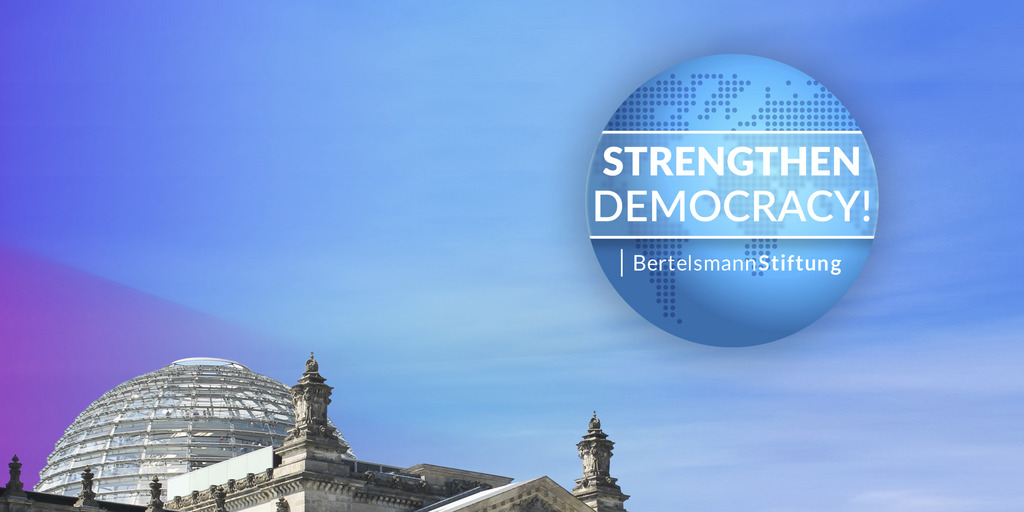
Montage: © tostphoto - stock.adobe.com / © Lubo Ivanko - stock.adobe.com / Bertelsmann Stiftung
Strengthen democracy! Priorities for 2024
In 2024, more than a third of the world’s population will go to the polls. In the US, in Europe and in Germany, the coming elections will determine how the future plays out. The year 2024 is therefore a crucial one for democracy. It’s already clear: if they are to thrive, the world’s democracies must become more efficient, more resilient and more responsive to people’s needs.
Content
The Bertelsmann Stiftung’s Transformation Index
The quality of democracy in developing and transition countries has steadily deteriorated over the past twenty years. Today, there are only 63 democracies compared to a majority of 74 autocracies - this is shown by the latest figures from the Bertelsmann Stiftung's Transformation Index (BTI). For the tenth time, the BTI is analyzing developments in governance in 137 developing and transition countries.
Learn more: How to halt democracy erosion (bertelsmann-stiftung.de)
Sustainable Governance Indicators
What the BTI documents for developing and transition countries, our Sustainable Governance Indicators (SGI) do for the 41 EU and OECD states. The Scandinavian countries generally perform well when it comes to sustainable good governance.
Committed to fighting disinformation
Disinformation and deliberately disseminated falsehoods are among the greatest threats to democracy. In Germany as elsewhere, people view targeted disinformation as a danger for democracy – as our study “Disconcerted Public” shows. According to the survey carried out for the study, 81 percent of respondents say that disinformation endangers democracy.
There is also widespread awareness of the problem at the European level, as another Bertelsmann Stiftung survey makes clear. According to the study, one respondent in two (54 percent) is often or very often unsure if the information they find on the Internet is true.
So how can we become more resilient against disinformation campaigns in social media? In the run-up to the European elections, we’ve assembled a comprehensive list of our recommended responses, which you’ll find here.
Forum Against Fakes – Together for a Strong Democracy is running an online campaign to explain to people what the dangers of disinformation are. Everyone in Germany is invited to participate at www.forum-gegen-fakes.de. The submitted suggestions will be compiled by a citizens’ council then presented to policy makers.
Citizen participation protects democracy
The European Union needs a union of citizens who have the chance to participate in the policy-making process – early on and in a way that makes it more democratic and more efficient. That is the message of our policy brief “The EU’s participatory enlargement.”
Together with the European Committee of the Regions, the New Democracy project has launched the Becoming a Participation Professional initiative. Thanks to the initiative, 45 young politicians from 25 European countries are being trained as experts in citizen participation.
At the end of last year, the Bertelsmann Stiftung also founded the Network for Citizen Participation & Deliberation together with FIDE (Foundation for Research on Law and Business). The network’s aim is to improve and anchor citizen participation in Europe.
The Bertelsmann Stiftung used a series of events to focus on the importance of citizen participation. The importance of the local level, where the EU’s decision-making takes concrete shape, was the subject of a discussion with European Commission Vice-President Dubravka Šuica. It was also the topic of a second discussion, which included the call to firmly anchor citizen-participation models in European policy-making. At another Bertelsmann Stiftung discussion, Art O'Leary, chief executive of Ireland’s Electoral Commission, described how the Irish approach works and how other countries can emulate it.
Focus on Europe
There is no question that the EU is in need of reform. What such a reform should look like was the question addressed during a discussion with Daniela Schwarzer, a member of our Executive Board, Guy Verhofstadt, former Belgian prime minister, and Janis Emmanouilidis, director of studies at the European Policy Centre. A video of the event is available here. "What's Next for EU Democracy" was the title of another discussion in the series.
The Bertelsmann Stiftung brought together the voices of 1.5 million young people between the ages of 15 and 34 from all of the EU member states, and their messages have been summarized in the Agenda of Hope. Above all, young Europeans are calling for greater citizen participation in EU policy-making.
Strengthen social cohesion
How strong is social cohesion in Germany? The book “Anders wird gut” (Different Is Good) – written by Kai Unzicker, our expert for social cohesion, and journalist Verena Carl – provides examples of well-functioning social cohesion in the country.
The Weimar Conversations examined the topic “Transformation of the Public Sphere – Risks for Social Cohesion.” The takeaway from the conversations: Positive change is possible.
Collaborate more, communicate policies better
Democracy doesn’t work without compromise – and sometimes not without conflict. At such times, people lose sight of what’s been achieved. And the achievements of Germany’s much-maligned coalition government are actually better than the its reputation would suggest.
German Minister of Defense Boris Pistorius did not mince words at an event organized by the Bertelsmann Stiftung, where he called for “passion for democracy and freedom” in light of the attack on Ukraine.

Against antisemitism, racism and xenophobia
In times of crisis, it becomes clear how valuable a functioning civil society is. Yet civil society also requires structures – including religious ones. The publication "An das Gute glauben" (Believing in the Good) analyses the role faith-based communities play in supporting refugees.
At the same time, however, discrimination is becoming more and more common. Our survey shows that an increasing number of people in Germany say they have experienced discrimination. Of the participating respondents, 13 percent said that, in the previous 12 months, they felt discriminated against (“very often” or “sometimes”) due to their ethnic heritage, as a result of racism or antisemitism, or because they are originally from another country.
As the case of Canada shows, it is possible to implement successful immigration policies, since the country currently expects to welcome a record number of newcomers – more than 460,000 – per year.
From Washington: Activities of the Bertelsmann Foundation
#DemocracyStrengths across the Atlantic: Our colleagues in Washington take a close look at the state of democracy in the super election year 2024. What would Trump's election victory mean for democracy in the USA? And how divided is the USA?
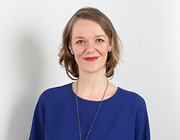
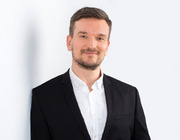
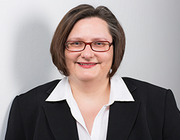
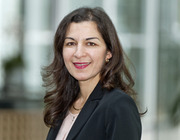

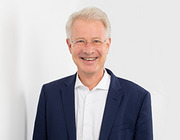
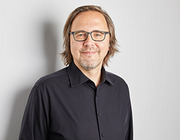


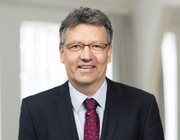
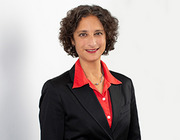


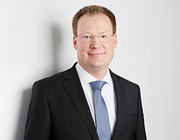
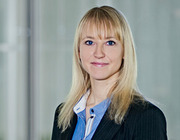
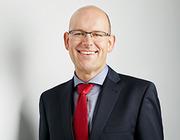

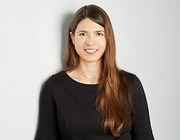
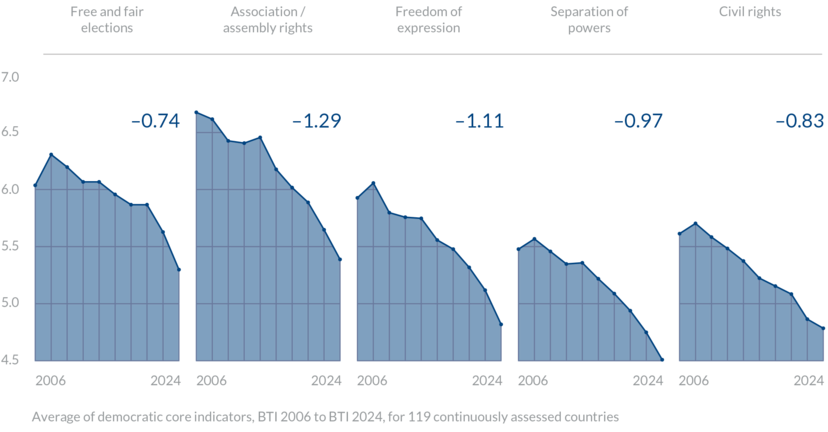
![[Translate to English:] viele Fragezeichen liegen übereinander. Auf der rechten Seite sticht ein rotes Fragezechen hervor.](/fileadmin/files/_processed_/c/2/csm_AdobeStock_204180371_KONZERN_ST-DZ_08_875fcc023d.jpg)



